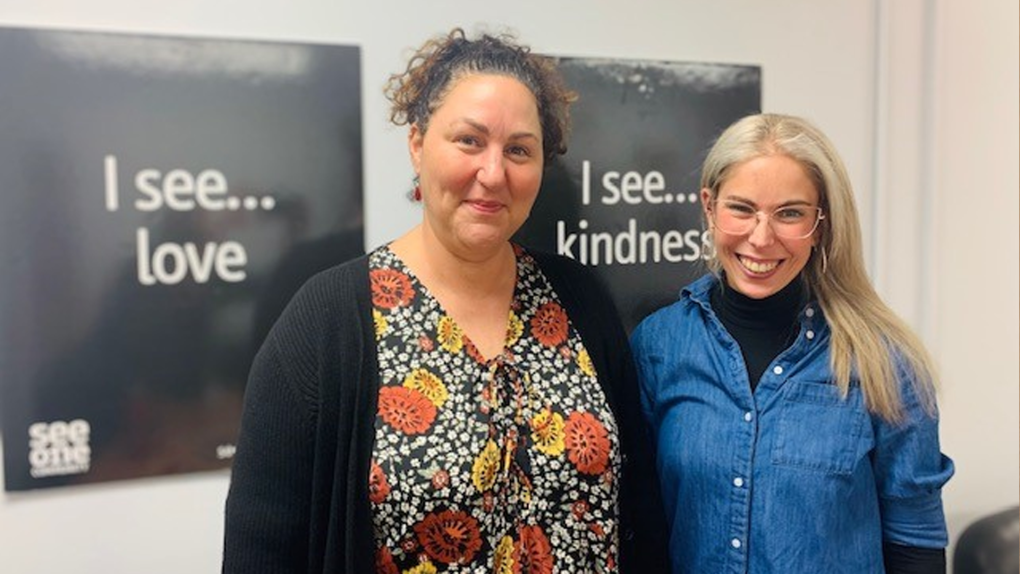Safer Opioid Supply program shows stability in combatting opioid crisis but leaves critics concerned
A new report is highlighting the benefits of the Safer Opioid Supply (SOS) program in London, Ont. where patients with severe opioid dependence are given prescriptions that are filled at pharmacies, rather than source their drugs on the street.
Public Health researcher Dr. Gillian Kolla said there's been a remarkable amount of stability.
"People are reporting a massively decreased amount of drug use from the street supply, they're not using as much fentanyl from the street supply, and in fact a substantial portion of people have stopped using fentanyl completely, because they have access to the prescribed safer supply,” explained Dr. Kolla.
The evaluation report compared the major health and social outcomes of people in the SOS program in 2022 and 2023. It also found that users were less likely to be hospitalized or end up in the emergency department.
The report is being met with criticism.
"We don't have any high quality science at all, and yet we are basing significant policy decisions on studies like this one and it's essentially the methodology of a customer satisfaction survey,” said Julian M. Somers, Clinical Psychologist & Professor of Health Sciences.
The lead and founding physician for the SOS program at London InterCommunity Health Center (LIHC) Dr. Andrea Sereda said they’ve seen a remarkable turnaround since the program began in 2016.
"We have people putting on weight, we have people eating regularly, we have people moving into housing, with all the improvements in their health and wellbeing that comes with that," said Dr. Sereda.
 Public health researcher, Dr. Gillian Kolla with lead and founding physician for the SOS program at London InterCommunity Center (LIHC) Dr. Andrea Sereda on Sept. 21, 2023. (Reta Ismail/CTV News London)
Public health researcher, Dr. Gillian Kolla with lead and founding physician for the SOS program at London InterCommunity Center (LIHC) Dr. Andrea Sereda on Sept. 21, 2023. (Reta Ismail/CTV News London)
Dr. Kolla stressed the fact that there have been a number of peer-reviewed studies completed in the past few years that show harm reduction services have been proven to be more cost-effective.
But despite the research, some critics of the SOS programs say it's doing more harm than good.
This past May, federal Conservative leader Pierre Poilievre introduced a motion to ban safe supply of drugs, saying it fuels addiction rather than recovery. The motion was defeated.
One major concern from critics is diversion of prescription opioids; the theory that many users are reselling the hydromorphone they received in safe supply to fund the purchase of fentanyl.
"Diversion is happening, we've had reports of course of people who are purchasing these diverted drugs, experiencing adverse events, including some tragic deaths," explained Dr. Somers.
"If that was true, we wouldn’t be seeing across the board improvements in people’s medical status, their mental health status, their social outcomes,” said Dr. Sereda.
The report noted, nationally, almost 35,000 opioid-related overdose toxicity deaths have been recorded between January 2016 and September 2022, and Ontario continues to be the province with the highest number of opioid toxicity deaths, with 1,800 deaths due to opioid toxicity in the first 10 months of 2022.
Dr. Sereda said the SOS program is currently at capacity, serving 274 community members, but the need is much greater and she would like to see the program expanded.
CTVNews.ca Top Stories

opinion Tom Mulcair: Prime Minister Justin Trudeau's train wreck of a final act
In his latest column for CTVNews.ca, former NDP leader and political analyst Tom Mulcair puts a spotlight on the 'spectacular failure' of Prime Minister Justin Trudeau's final act on the political stage.
B.C. mayor gets calls from across Canada about 'crazy' plan to recruit doctors
A British Columbia community's "out-of-the-box" plan to ease its family doctor shortage by hiring physicians as city employees is sparking interest from across Canada, says Colwood Mayor Doug Kobayashi.
'There’s no support': Domestic abuse survivor shares difficulties leaving her relationship
An Edmonton woman who tried to flee an abusive relationship ended up back where she started in part due to a lack of shelter space.
Baseball Hall of Famer Rickey Henderson dead at 65, reports say
Rickey Henderson, a Baseball Hall of Famer and Major League Baseball’s all-time stolen bases leader, is dead at 65, according to multiple reports.
Arizona third-grader saves choking friend
An Arizona third-grader is being recognized by his local fire department after saving a friend from choking.
Germans mourn the 5 killed and 200 injured in the apparent attack on a Christmas market
Germans on Saturday mourned the victims of an apparent attack in which authorities say a doctor drove into a busy outdoor Christmas market, killing five people, injuring 200 others and shaking the public’s sense of security at what would otherwise be a time of joy.
Blake Lively accuses 'It Ends With Us' director Justin Baldoni of harassment and smear campaign
Blake Lively has accused her 'It Ends With Us' director and co-star Justin Baldoni of sexual harassment on the set of the movie and a subsequent effort to “destroy' her reputation in a legal complaint.
Oysters distributed in B.C., Alberta, Ontario recalled for norovirus contamination
The Canadian Food Inspection Agency has issued a recall due to possible norovirus contamination of certain oysters distributed in British Columbia, Alberta and Ontario.
New rules clarify when travellers are compensated for flight disruptions
The federal government is proposing new rules surrounding airlines' obligations to travellers whose flights are disrupted, even when delays or cancellations are caused by an "exceptional circumstance" outside of carriers' control.


































